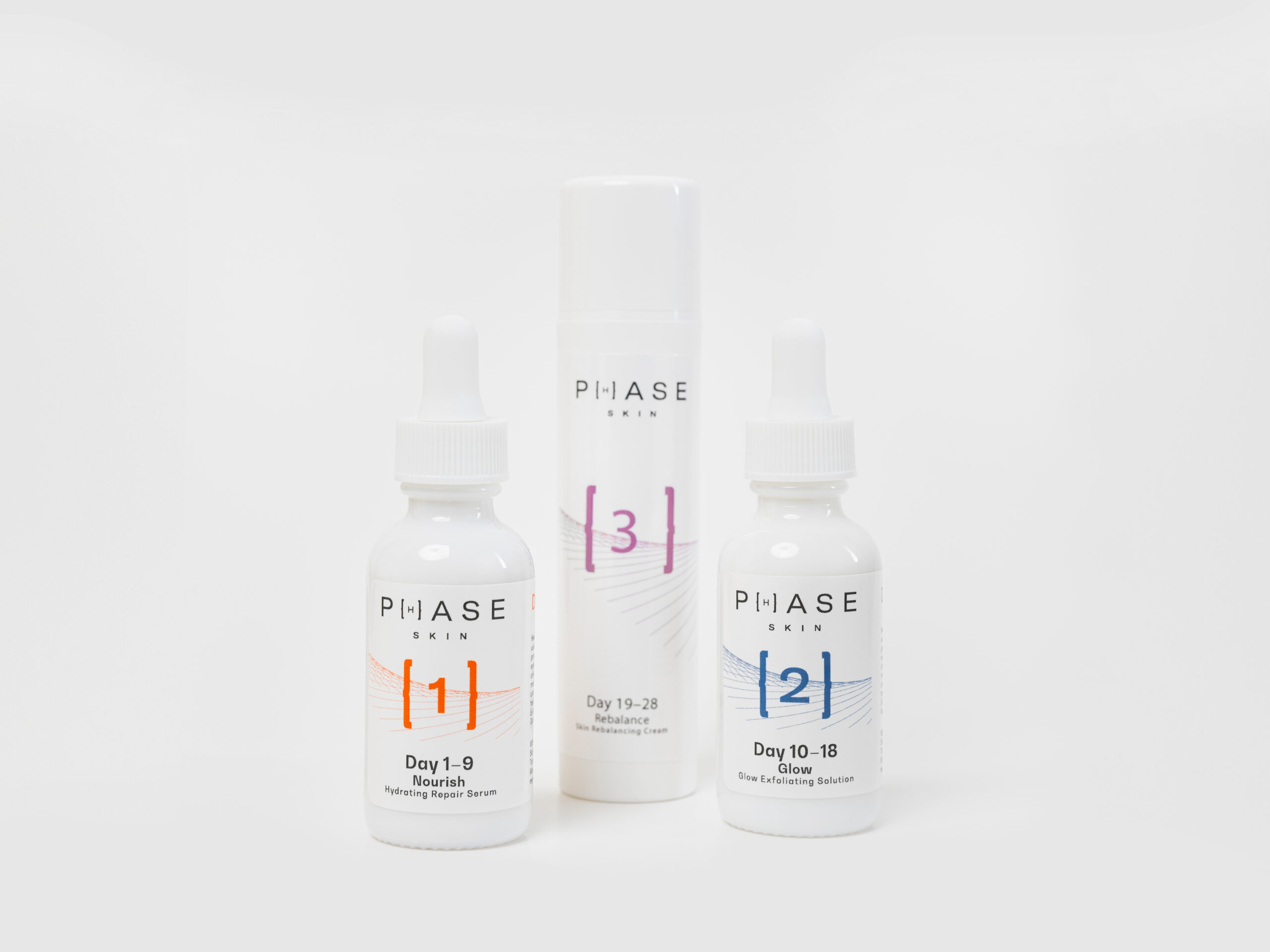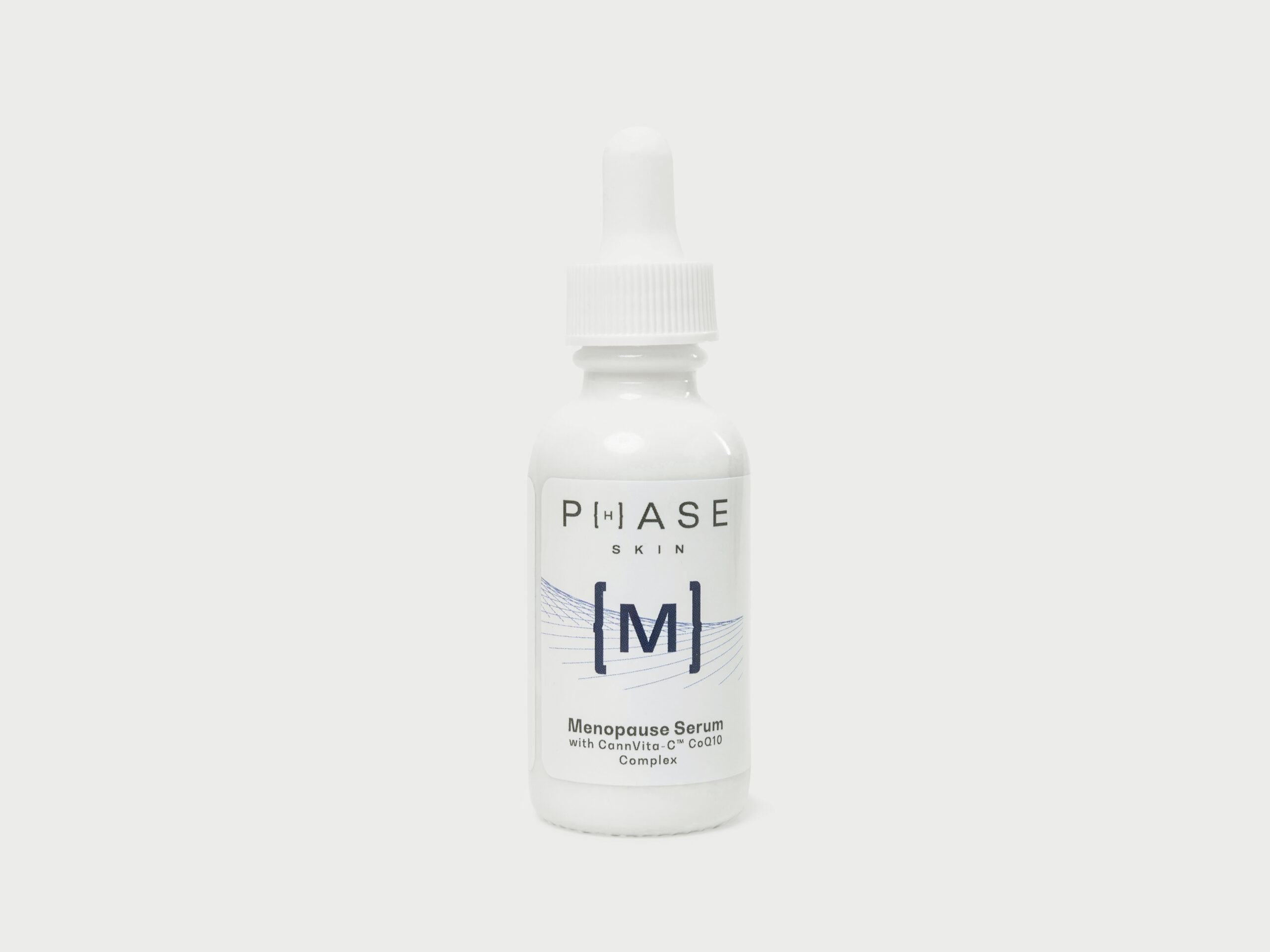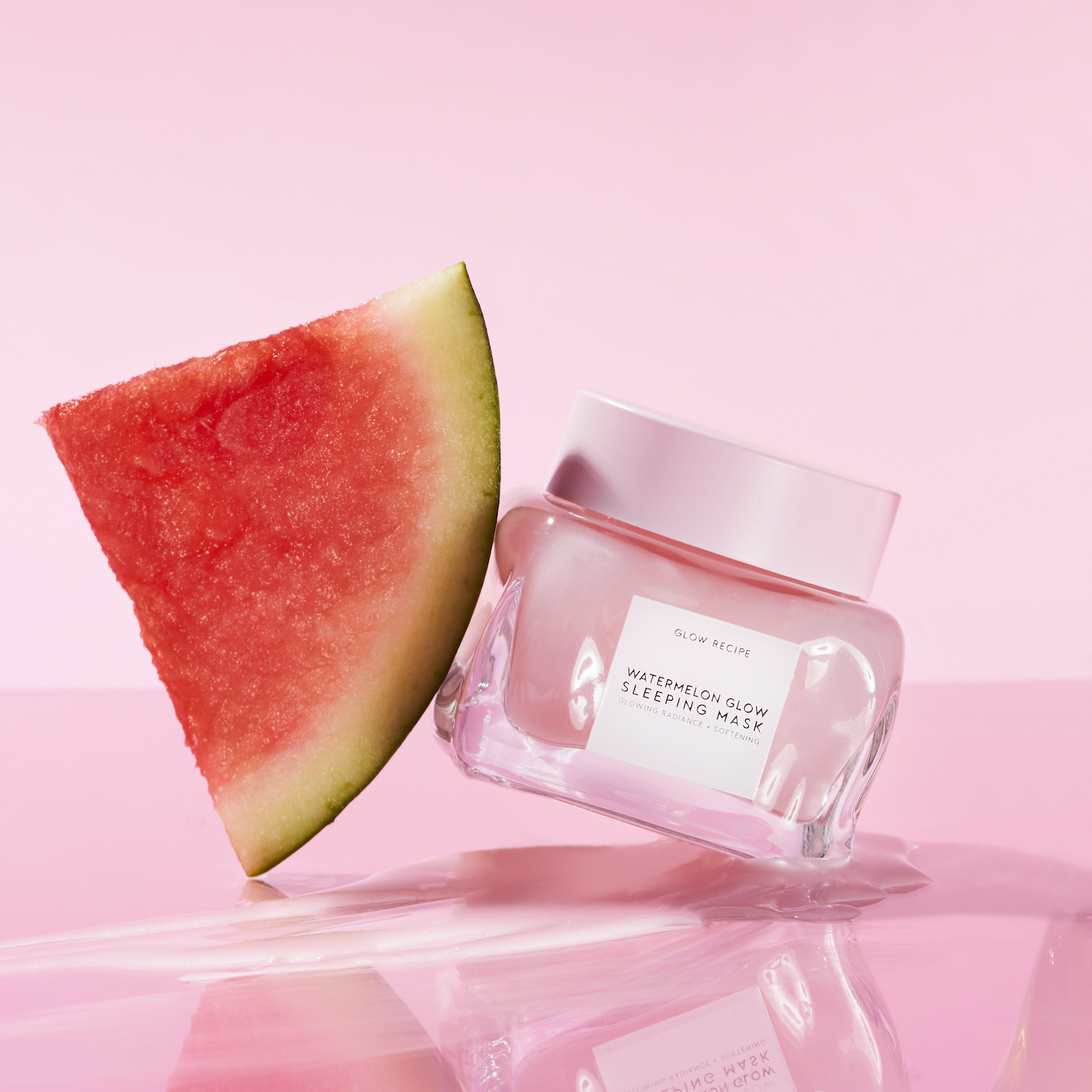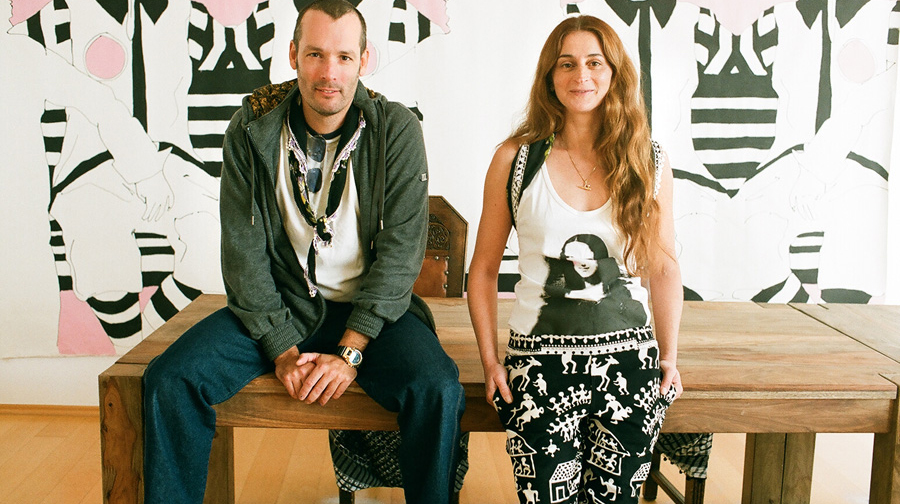What Is Hormonal Skin Care?
This Canadian company makes products that align with the body's cycles.

Our skin goes through phases, and no one knows this better than Stephanie Sharabura and Kristin Kurian. The Toronto-based duo have developed a skin-care line for menopause and menstruation called P{H}ASE that works in tandem with the body’s natural hormone production to meet skin’s needs during those cycles.
Sharabura has a background in vitamin C research and Kurian in biology, medical lab technology, health science, and community health—but the two share a special interest in the transition in women from menstruation to menopause and the changing needs of the skin that accompany it.
During menstruation, the body falls into a rhythm of crests and falls in estrogen and progestogen levels that can be mapped with corresponding problems in the skin. But starting in their 30s, women experience their estrogen levels starting to slowly but steadily decline while antigens (like testosterone) remain constant—causing another set of problems.
One other crucial factor that isn’t often discussed: women can enter menopause at any time. Either from chemotherapy radiation, certain surgeries, or trauma, women in their 30s can begin menopause, which was the experience of both Sharabura and Kurian.
When they looked around for answers to their skin’s changing needs, everything was aimed at older women. “Everything we saw didn’t speak to people in their 30s,” explains Sharabura. They developed P{H}ASE to guide women through what was happening to their skin in order to help them take the guesswork out of their skin-care routines.
The entrepreneurs and their teenage daughters spent 18 months identifying their skin’s specific problems during their bodies’ cycles and sought out target ingredients that addressed those issues to create their kit of products.

Stephanie Sharabura and Kristin Kurian, the founders of P{H}ASE, both entered menopause in their 30s and created the skincare line as a response to the lack of options for women suffering through menopause-related skin changes at a younger age.
In phase 1 of the cycle, the nine days during menstruation, levels of estrogen and progesterone are low, which dulls the skin. The skin needs products that increase circulation, hydrate, and encourage brightening, like ginseng and vitamins C, B3, and B5.
In phase 2, also called the follicular phase, women are ovulating and the skin is less likely to have skin irritation, so it’s a good time to use products with ingredients like glycolic and citric acids and rose hip that exfoliate and help the skin glow.
Phase 3 begins the day after ovulation ends. The balancing scale of hormones has just tipped in favour of testosterone, which creates an excess of sebum that clogs pores. Products that prevent acne are crucial in this phase: vitamin c, peptide blends, tea tree oil, and antibacterial ingredients work best.
P{H}ASE has rounded up these ingredients, ensured they are vegan and cruelty free, and put them in a clearly labelled box. Moreover, it creates the option for women to understand the connection between their skin and skin care—and a longer journey that is taking place beneath the surface with their hormones.

The P{H}ASE Menopause Serum is made to increase collagen synthesis in the skin and combat the loss of skin elasticity caused by lowered estrogen levels.
The decline in estrogen from age 30 to 40 also results in a 30 per cent loss of collagen, which causes skin to lose elastic fibre synthesis, causing sagging and wrinkling. Skin gets thinner too, and women in perimenopause can experience itchy skin from reduced water retention.
The transition takes years, so women may take awhile to realize it is happening. P{H}ASE is meant to come with you through life, adding in and taking out products as you change. You can continue to use the kit through perimenopause but add in the serum to help pre-empt the other problems that will arise. It can also be used alongside favourite cleansers and moisturizers.
*
Interested in beauty products that take into account changes in the body? Read here about how to shape your routine for skincare when you are stressed.
________
Never miss a story. Sign up for NUVO’s weekly newsletter here.








